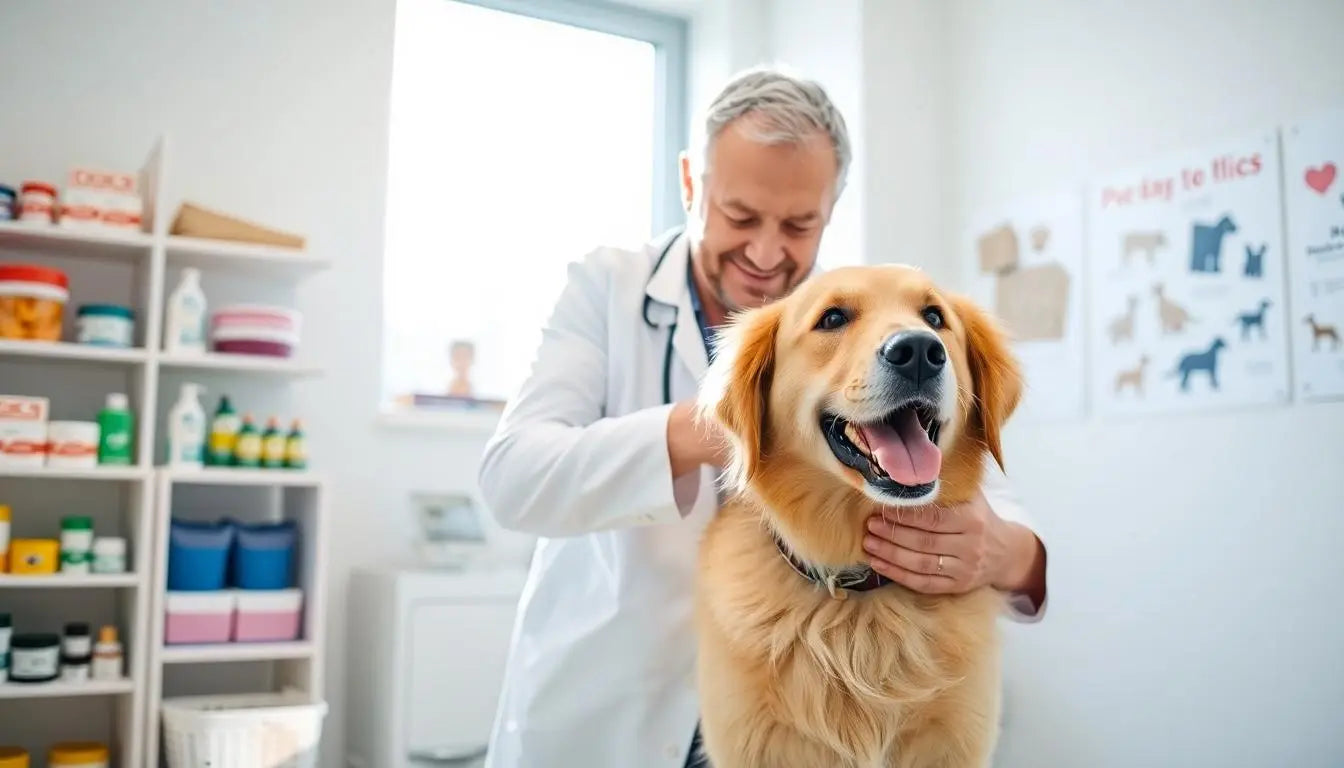Keeping Your Canine Companion Healthy: A Guide to Dog Healthcare

As a devoted pet parent, ensuring the health and well-being of your furry friend is of utmost importance. At PAWMART, our passion for pet care extends beyond just providing high-quality supplies – we're committed to empowering dog owners with the knowledge and resources to keep their canine companions thriving. In this comprehensive blog post, we'll delve into the essential aspects of dog healthcare, equipping you with the tools and insights to maintain your pup's optimal health.
Understanding Your Dog's Unique Needs
Every dog is an individual, with its own set of physical, mental, and emotional requirements. Factors such as breed, age, and activity level all play a crucial role in determining the specific healthcare needs of your canine companion. By understanding these unique characteristics, you can tailor your approach to ensure your dog receives the personalized care they deserve.
Breed-Specific Considerations
Different dog breeds have inherent predispositions to certain health conditions. For instance, large-breed dogs may be more prone to joint issues, while smaller breeds may be susceptible to dental problems. Familiarizing yourself with the common health concerns of your dog's breed can help you stay proactive in their preventive care.
Age-Appropriate Care
The healthcare needs of a puppy, an adult dog, and a senior canine can vary significantly. Puppies require a comprehensive vaccination schedule, deworming, and socialization to build a strong foundation for their development. Adult dogs need regular check-ups, preventive treatments, and a balanced diet to maintain their overall well-being. As your dog enters their golden years, specialized geriatric care, including joint support and cognitive function monitoring, becomes increasingly important.
Lifestyle and Activity Level
The level of physical activity and exercise your dog engages in can also influence their healthcare needs. High-energy breeds, such as herding or working dogs, may require more intensive exercise routines and specialized nutrition to support their active lifestyles. Conversely, less active or senior dogs may need tailored exercise plans and adaptations to their living environment to ensure their comfort and safety.
Preventive Healthcare Measures
Proactive healthcare is the key to keeping your dog happy and healthy. By implementing a comprehensive preventive care regimen, you can significantly reduce the risk of serious health issues and ensure your canine companion enjoys a long, fulfilling life.
Routine Veterinary Checkups
Regular visits to your veterinarian are essential for maintaining your dog's health. These checkups allow your vet to perform physical examinations, administer necessary vaccinations, and identify any potential problems before they escalate. Be sure to follow your vet's recommended schedule for these visits, which may vary depending on your dog's age and overall health status.
Parasite Prevention
Parasites, such as fleas, ticks, and worms, can pose a significant threat to your dog's well-being. Implementing a comprehensive parasite prevention plan, which may include topical treatments, oral medications, or a combination of both, is crucial in safeguarding your pup from these pesky invaders.
Dental Care
Dental health is often overlooked, but it plays a vital role in your dog's overall well-being. Regular teeth cleaning, both at home and with professional veterinary cleanings, can help prevent gum disease, tooth loss, and other oral health problems that can impact your dog's quality of life.
Nutrition and Hydration
A balanced, high-quality diet tailored to your dog's age, breed, and activity level is essential for maintaining their physical and mental health. Ensure your pup has access to clean, fresh water at all times to support their hydration needs.
Exercise and Enrichment
Regular physical activity and mental stimulation are crucial for your dog's well-being. Engage your canine companion in activities that cater to their natural instincts, such as playtime, walks, and interactive toys, to keep them physically fit and mentally engaged.
Addressing Common Health Concerns
Despite our best efforts, dogs can sometimes face health challenges. By being proactive and educating yourself on the most common canine health issues, you can better recognize the signs and symptoms, seek prompt veterinary care, and work collaboratively with your vet to manage and treat any conditions that may arise.
Musculoskeletal Disorders
Joint and bone problems, such as arthritis, hip dysplasia, and cruciate ligament injuries, are prevalent in many dog breeds. Recognizing the early signs of these conditions and implementing appropriate treatment and management strategies can help alleviate your dog's discomfort and maintain their mobility.
Skin and Coat Issues
Skin conditions, such as allergies, hot spots, and infections, can cause significant discomfort for your canine companion. Proper grooming, the use of high-quality pet products, and prompt veterinary attention can help address these common dermatological concerns.
Digestive Troubles
Gastrointestinal issues, including vomiting, diarrhea, and food sensitivities, can be distressing for both you and your dog. Understanding the potential causes and working closely with your vet to identify and manage these problems can help restore your pup's digestive health.
Behavioral Challenges
Behavioral issues, such as anxiety, aggression, and separation anxiety, can have a profound impact on your dog's well-being and your relationship with them. Addressing these concerns through training, environmental enrichment, and, if necessary, veterinary-recommended behavioral therapies can help your dog thrive.
Embracing a Holistic Approach
Maintaining your dog's health is a multifaceted endeavor that goes beyond just addressing physical ailments. By adopting a holistic approach to your canine companion's care, you can support their overall well-being and ensure they live a happy, fulfilling life.
Integrative Therapies
Complementary and integrative therapies, such as acupuncture, massage, and herbal remedies, can work in conjunction with traditional veterinary care to provide a comprehensive approach to your dog's health. These modalities can help alleviate pain, reduce stress, and promote overall well-being.
Emotional and Mental Well-Being
Your dog's emotional and mental health are just as important as their physical health. Providing your pup with a loving, enriched environment, engaging in positive reinforcement training, and addressing any behavioral concerns can contribute to their overall happiness and resilience.
Preventive Measures and Early Intervention
By staying proactive and vigilant, you can often prevent or catch health issues in their early stages, when they are more manageable and treatable. Regularly monitoring your dog's behavior, physical condition, and any changes in their routine can help you identify potential problems early on and seek prompt veterinary care.
Conclusion
Caring for your canine companion's health is a lifelong journey filled with both challenges and immense rewards. By understanding your dog's unique needs, implementing comprehensive preventive measures, and addressing any health concerns promptly, you can ensure your furry friend enjoys a long, happy, and healthy life. At PAWMART, we're committed to supporting you every step of the way, providing the high-quality products, expert advice, and compassionate care your dog deserves. Together, let's embark on a journey of optimal canine health and well-being.
Partager
